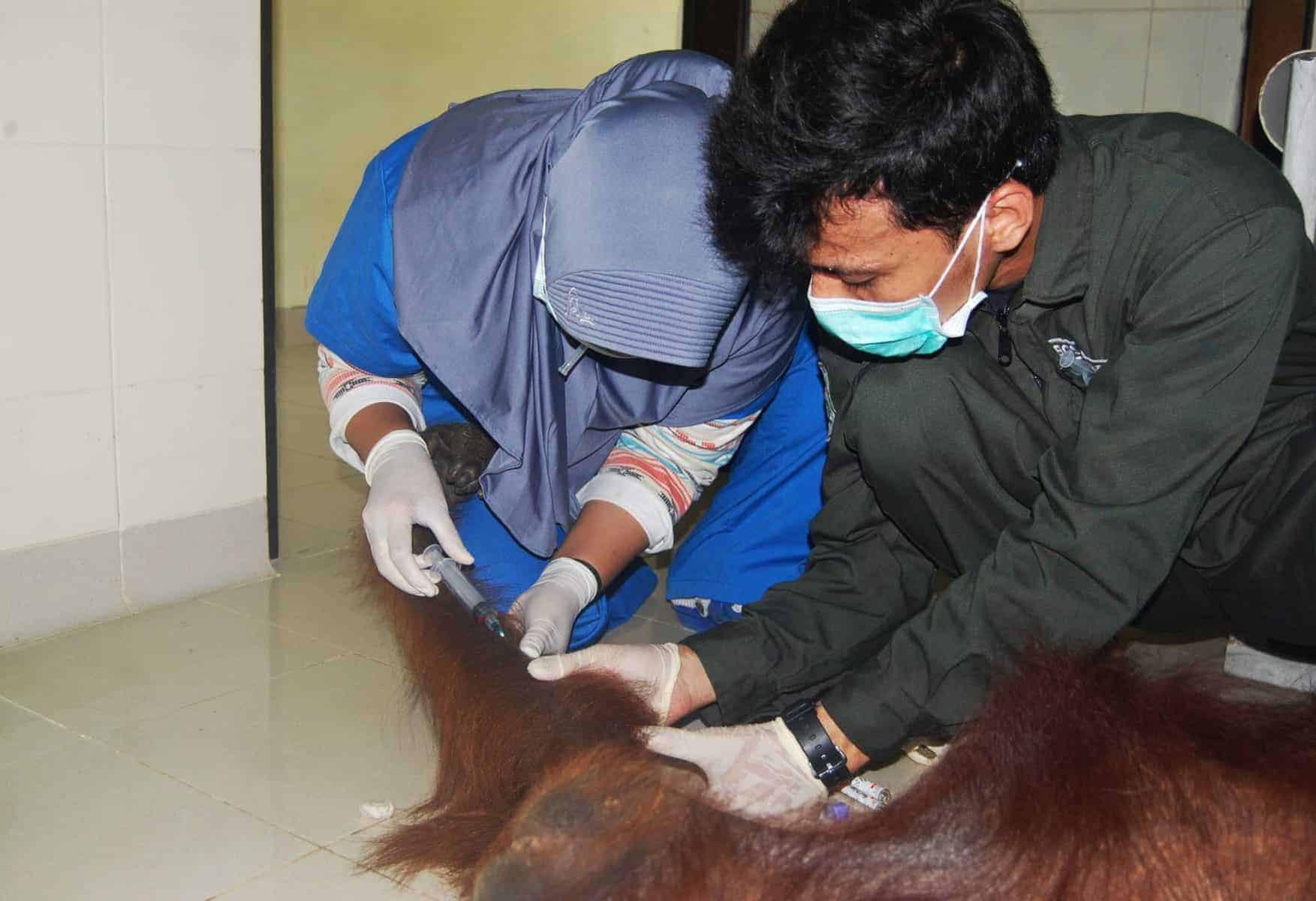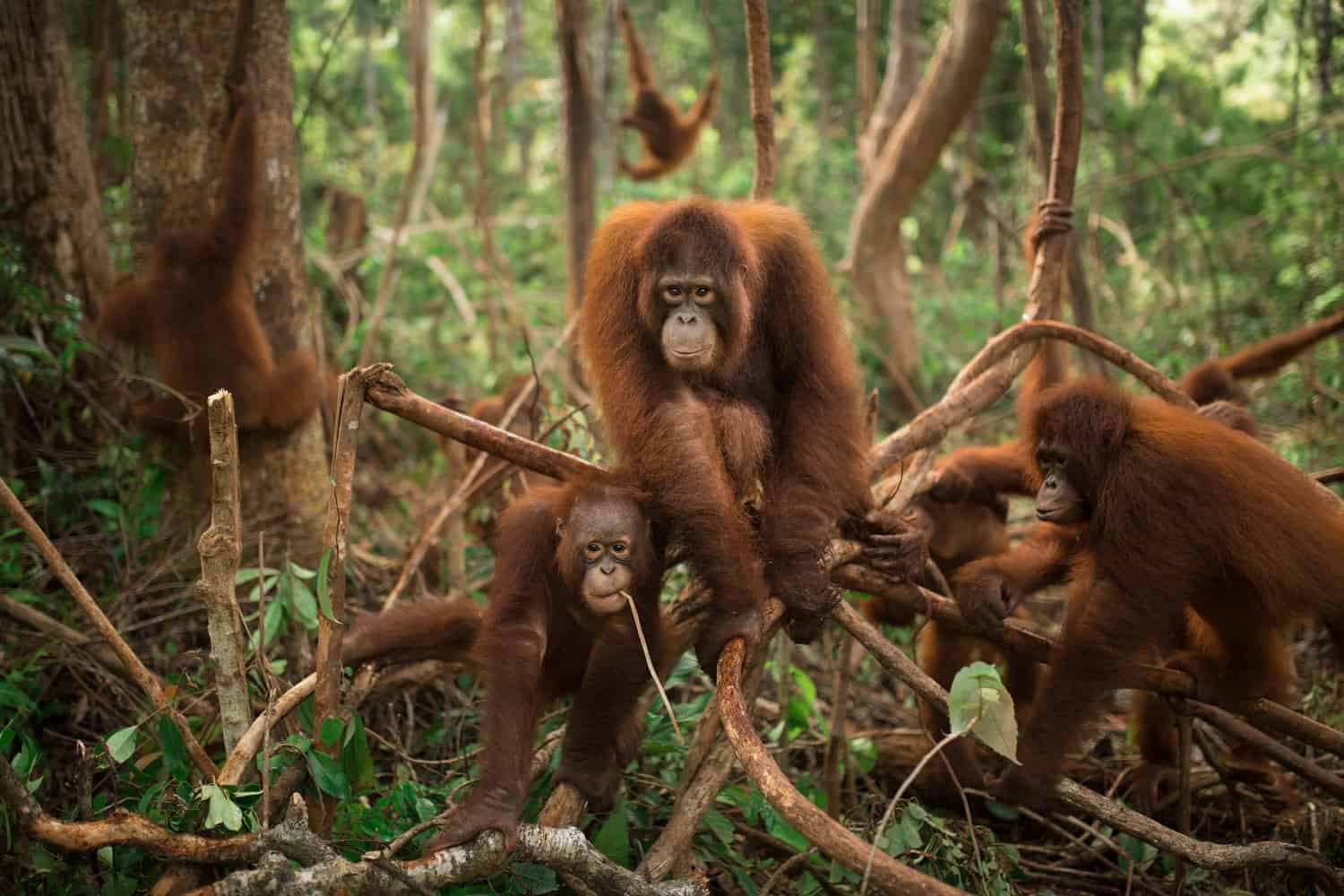The outbreak of the coronavirus poses a threat to orangutans
The current health crisis caused by the new coronavirus SARS-CoV-2 can pose a threat to the critically endangered orangutan. For this reason, experts around the world are recommending immediate measures to reduce the risk that the new coronavirus is transmitted to our closest biological relatives, the great apes, including the orangutan. The introduction and spread of the new coronavirus among the great apes, all of which are critically endangered, can have fatal consequences.
Can orangutans contract the new coronavirus?
There is extensive scientifc evidence that orangutans and other great apes are vulnerable to the same vira and bacteria that cause repiratory illness and disease in humans. This includes both ordinary colds, which are also caused by a corornavirus, influenza and tuberculosis. SARS-CoV-2, the new coronavirus that causes the disease COVID-19 in humans, can by the same token pose a threat to orangutans. There are currently no documented cases of the disease in orangutans.

Protection of staff and orangutans at the centres in Borneo
COVID-19 is now present in Indonesia, and the new virus is spreading rapidly throughout the country and is also present on the island of Borneo. Consequently, our Indonesian partner, BOS Foundation, has closed the rehabilitation centres Nyaru Menteng and Samboja Lestari to all visitors. Strict safety measures have been implemented to mitigate the risk of COVID-19 entering the centres, and emergency contingency plans have been drawn up in case of infection. Rainforest releases for the orangutans that have finished their rehabilitation stages have been postponed to avoid potential infection of recently released orangutans currently in the release areas.
Veterinarians and keepers at the centres are in acute need of personal protective equipment (PPE) and disinfection agents to protect themselves and the many orangutans, as well as medicine and equipment for testing and treatment of the orangutans. This is a very challenging situation, especially now due to the worldwide shortage of both PPE and testing kits and the resulting extreme price increases.

Protecting orangutans in the wild
Infectious diseases, deforestation and hunting are the three greatest threats to the critically endangered orangutan. The introduction and spread of the new coronavirus among wild orangutans can be fatal to the conservation of the orangutan species. The most effective way to minimize the exposure of wild orangutans to SARS-CoV-2 is to minimize direct and indirect contact between orangutans and infected people. Our partners in Borneo have therefore, in accordance with expert recommendations, paused all project activities that could present a threat to orangutans in this regard. In addition, they are actively assisting local communities in managing the COVID-19 epidemic and raising awareness of the threat that the disease poses for the critically endangered orangutan.
You can send emergency aid to the orangutans and the people of the rainforest here.